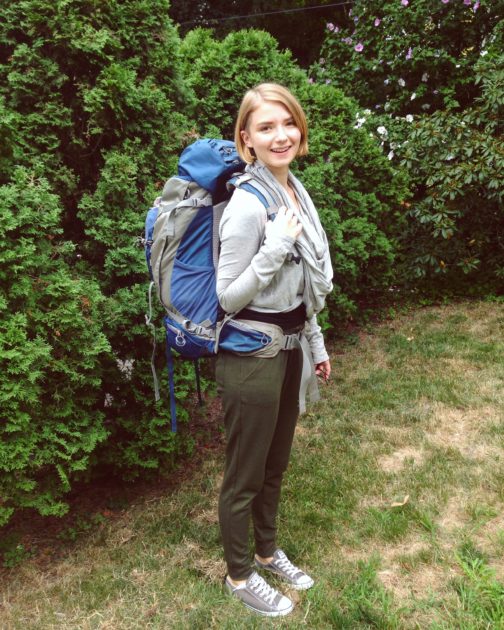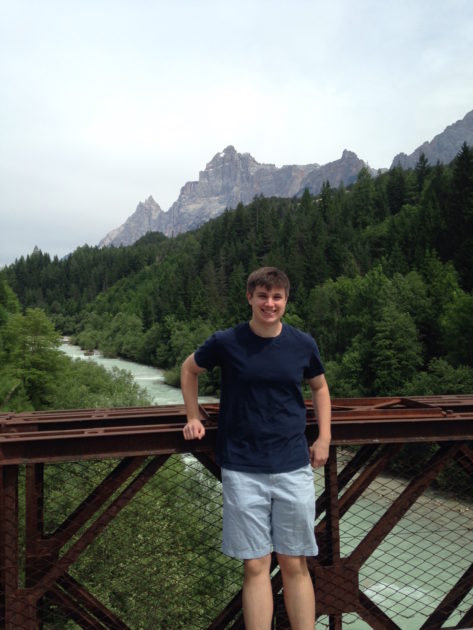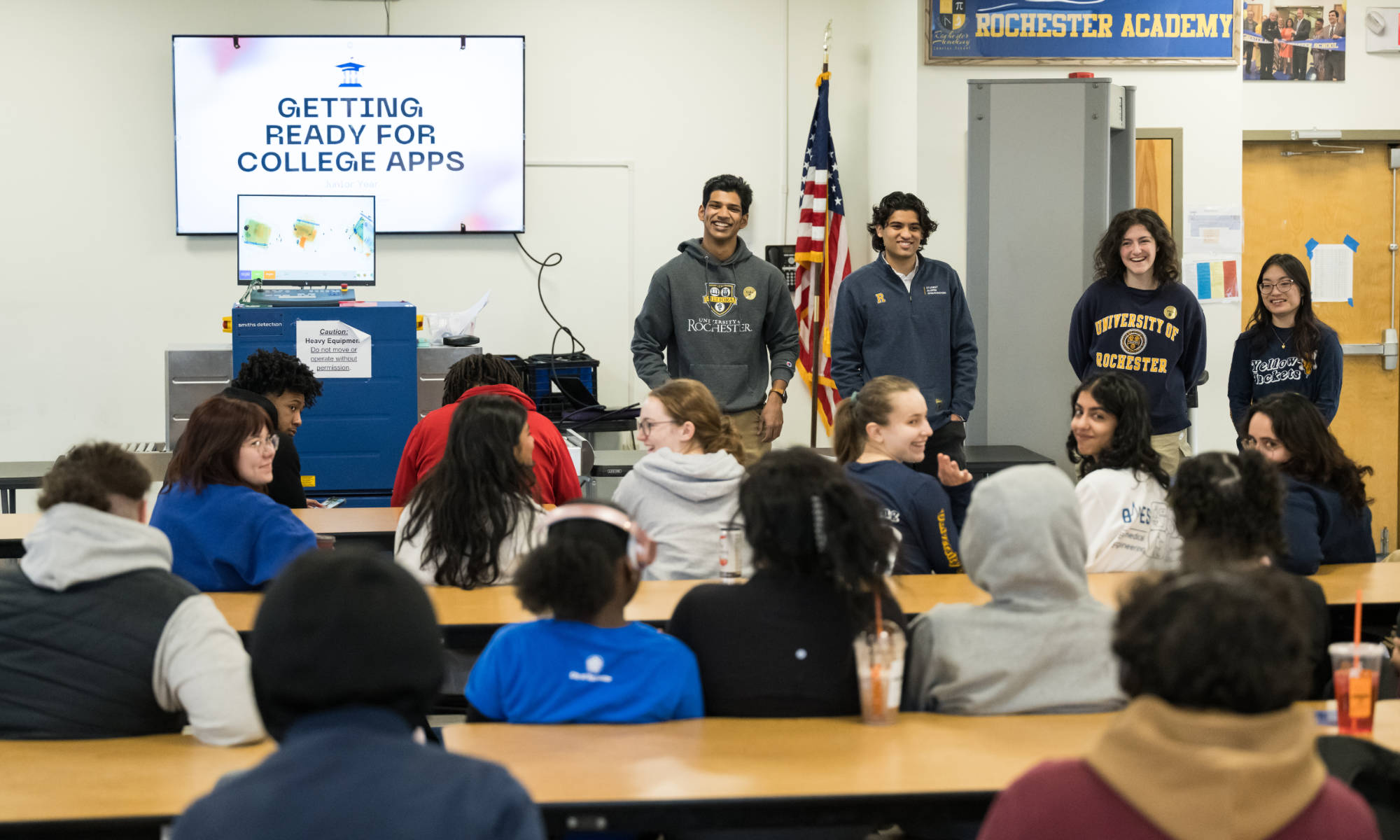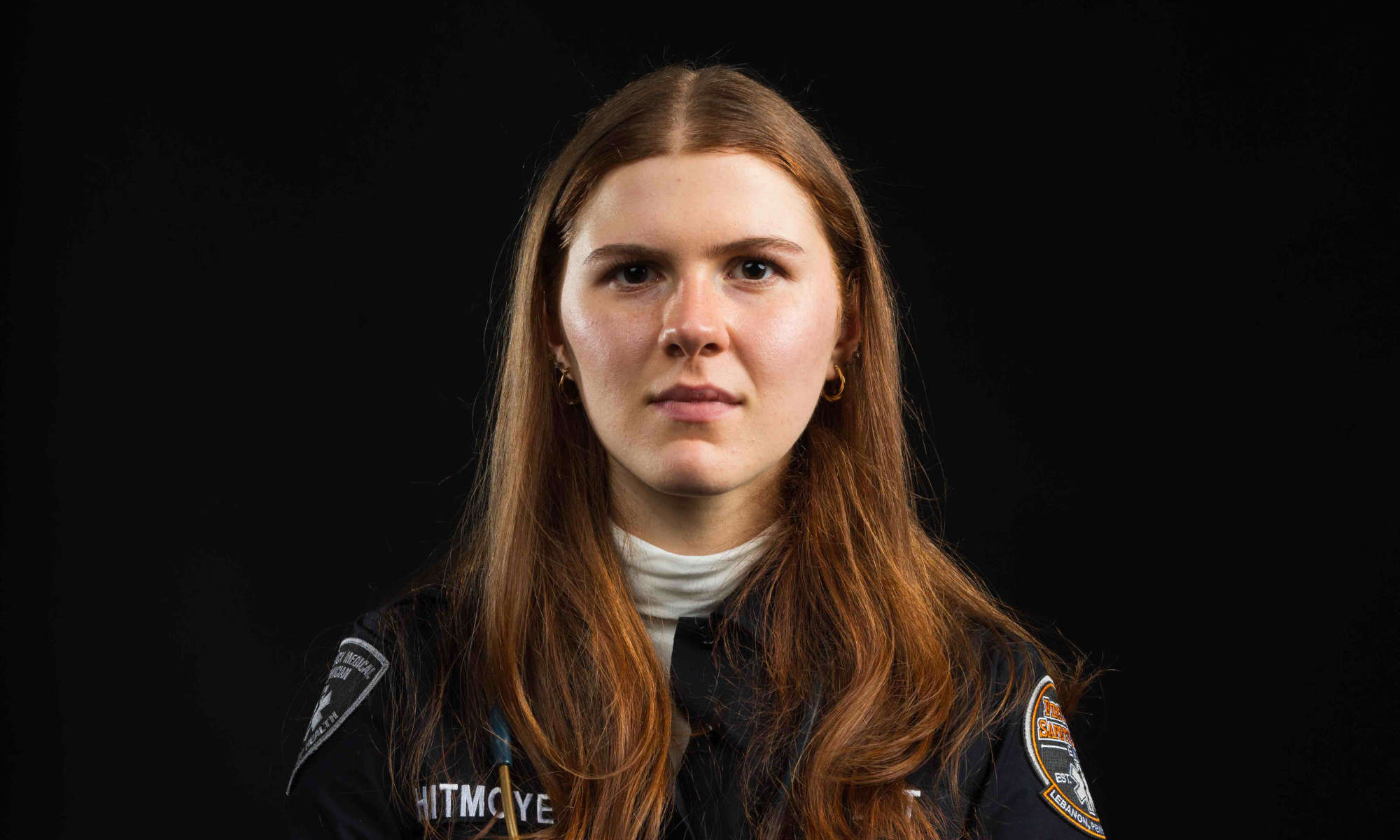As she walked the old streets of Göttingen, Germany, during her post-high school gap year, Daria Lynch ’18 couldn’t help but notice the large immigrant presence in the area. The majority were Turkish—the largest ethnic group in Germany after Germans, making up nearly 17 percent of the immigrant population. Lynch wondered why so many of the Turks didn’t seem to be interacting with the German community.
“I became interested in how and why the Turkish immigrated in Germany, interested in how both languages [German and Turkish] worked together for Turkish women, and interested in how language was either a border or a tool for them,” says Lynch, a history major who is also pursuing a certificate in literary translation, and teaching English as a foreign language at the Warner School of Education.

When she returned home to Brighton, a suburb of Rochester, and enrolled at the University, her curiosity about language lingered. Lynch was awarded a Discover Grant from the Office of Undergraduate Research and spent this past summer studying Turkish immigrants in Germany.
Each summer the University allocates thousands of dollars to enable students like Lynch to conduct research—independently, in a lab, or under the guidance of a professor.
This past year, the Discover Grant program, which began in 2014, received requests from more than 125 students asking for $450,000 worth of research funding. With a budget of $165,000 the Office of Undergraduate Research was able to approve 90 percent of the proposals, though some requests were only partially funded. The University has an array of grant programs, including Research and Innovation Grants (RIG) that are awarded to select incoming freshmen, the de Kiewiet Fellowships in Biology, and the Eisenberg Fellowships in Chemical Engineering.
“The goal is to make summer projects possible,” says Ann Robinson, office administrator at the Office of Undergraduate Research, who handles the processing of Discover project proposals. “If a student is in the position where they would be unable to do the project and also make ends meet financially, receiving the grant will enable them to have this great form of experiential learning.”
Back in Germany, Lynch scoured the archives of Berlin and Cologne to investigate German language acquisition among Turkish immigrant women over time.
“I would not have been able to find a lot of these sources in the U.S.,” she says. “There are newspaper articles, pamphlets, and other items that aren’t available elsewhere.”
Research as a team effort
While Lynch worked independently, traveling by herself, other University-funded undergraduate projects involve group work under the direction of a professor.
Michael Jarvis, professor of history, guides a group of undergraduate researchers to Bermuda, where they work on a digital map of archeological remnants. Nancy Chin, professor of public health, takes groups of students to the mountainous town of Borca di Cadore, Italy, each summer to conduct community-based research in order to understand how to best promote social cohesion among different generations.

Andrew Tarbox ’17, a double major in Spanish and health, behavior, and society from Wellesley, Massachusetts, has received Discover Grants to work with Chin during the past two summers.
“It’s exposed me to a way to think about the community and to a different mind-set,” says Tarbox. “You are not the helicopter coming in—rather, the majority of the time you’re just listening and attending community events and observing. It’s a really cool combination of anthropology and public health, and it’s cool to work with a professor who works with the anthropological method in an applied setting.”
After returning from Italy, many of Chin’s students have chosen to continue on and write papers on their findings. Tarbox, along with peer student researcher Chloe Chepigin ’16, was awarded additional funding by the Office of Undergraduate Research to present at the Society for Applied Anthropology annual meeting in Vancouver last spring. Tarbox—and Lynch—also received the Susan B. Anthony Gender and Women’s Studies Research Grant as an added source of financial assistance. Other students have presented at the University’s Undergraduate Research Colloquium.
“Giving students the opportunity not only to attend but to present at conferences is vitally important because it’s really eye-opening, and being able to interact with people who are experts in the field is really important too,” says Tarbox, who plans to become a professor of community health, and would like to continue community-based research focusing on nutrition. “It’s reframed my conception of the research.”
Back in Rochester
Students have found independent research to be transformative not only abroad, but in the city of Rochester as well. Chiziterem Onyekwere ’17, a McNair Scholar and a psychology and public health double major, found that having the opportunity to pursue research allowed her to apply her academic skills and become a fundamental part of her experience at the University. Under the guidance of Catherine Cerulli, associate professor of psychiatry and director of the Susan B. Anthony Center, Onyekwere had the freedom to design and co-lead her own focus groups. Simultaneously, she carried out a computer-assisted survey instrument designed by Cerulli, who is also lawyer, to assess the effectiveness of the legal services offered.
“It’s given me a newfound love for this topic, but also a newfound outlook on college,” says Onyekwere, who was born in Nigeria and now lives in East Brunswick, New Jersey. “The fact that they gave me the opportunity to have a little bit of leeway and autonomy meant that I got to figure out what I wanted to do, and it really helped me figured out who I want to be and how my undergraduate career will continue on.”
Steve Manly, director of the Office of Undergraduate Research, says important objectives for the office are to provide more support for students working on research during the summer and to provide an avenue for faculty and students to ask for money that will launch new projects and enable more quality undergraduate research opportunities.
“In particular, the hope with the latter is to be able to fund new ideas that cannot be funded in any other way,” Manly says.
For Lynch, Tarbox, and Onyekwere alike, the financial support of the University’s grants has become an influential force in shaping their futures.
“Being alone in a foreign country in not my first language was really hard, but I met some really great people and everyone proved really excited about my research,” says Lynch, who will be studying next semester in Vienna, where she hopes to get involved with the immigrant community and continue her research. “I ended up really enjoying the research process, and I’m now looking at grad school as a probable future.”



